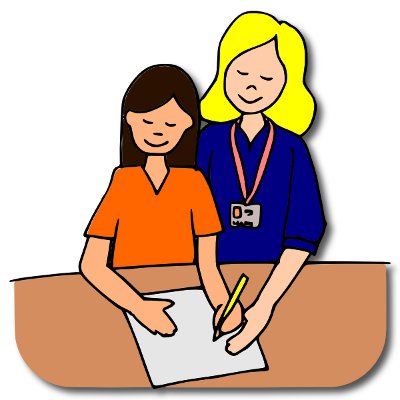Browse By Unit
8.10 Evaluating Strengths, Weaknesses, and Empirical Support for Treatments of Disorders
2 min read•june 18, 2024
Emily Pedrazzi
Dalia Savy
Emily Pedrazzi
Dalia Savy
Other Types of Therapy
👤 Individual Therapy
Individual therapy can widely vary depending on the approach, but is always a one-on-one client-centered setting with various areas that can be improved. The main downside is that any interpersonal techniques may be hard to practice, because no one else is present.
😎 Group Therapy
Group therapy is a support-centric type of therapy that helps patients feel less isolated in their problems. Group therapy is great for developing interpersonal and other social skills while costing less and providing more progress. Group therapy may be hard for individuals who prefer to keep their issues out of the public eye.
👪 Family Therapy
Family therapy attempts to heal relationships and open up communication between family members in order to resolve conflicts.
🙃 Rational-Emotive Therapy
As stated in the name, Rational-Emotive Therapy serves to rationalize, contextualize, and identify negative feelings and associated patterns. Thoughts are placed in different contexts and reframed in attempts to correct or replace certain patterns. The major downside to this type of therapy is that deeply rooted issues take time to undo.
Benefits of Psychotherapy
Some people get stressed when it comes to recovering through therapy, but it ultimately has lots of benefits. Here are three:
- 🌠 Hope—Psychotherapy provides hope for those struggling and shows them that they aren't alone (other people are struggling with the same issue as well).
- 😃 New attitude—Therapy often introduces a new lifestyle and way of life to those that viewed life through a pessimistic pov.
- ❤️ New relationships—Many times a therapist and their client develops a close relationship. This is a term itself (therapeutic alliance).

Image Courtesy of Clipart Library.
Comparing Therapy Techniques
| Therapy | Problem | Therapy Aim | Therapy Technique |
| Psychodynamic | Unconscious conflicts from childhood experiences. | Reduce anxiety through self-insight | Interpret patients' memories and feelings |
| Client-centered (humanistic) | Barriers to self-understanding and self-acceptance. | Enable growth via unconditional positive regard, genuineness, and empathy. | Listen actively and reflect clients' feelings. |
| Behavior | Dysfunctional behaviors | Relearn adaptive behaviors; extinguish problem ones. | Use classical conditioning or operant conditioning. |
| Cognitive | Negative, self-defeating thinking | Promotes healthier thinking and self-talk. | Train people to dispute negative thoughts and attributions. |
| Cognitive-behavioral | Self-harmful thoughts and behaviors | Promote healthier thinking and adaptive behaviors | Train people to counter self-harmful thoughts and to act out their new ways of thinking. |
| Group and Family | Stressful relationships | Heal relationships | Develop an understanding of family, explore roles, and improve communication. |
Table Courtesy of GwynStudyGuide. All credit to Myers' AP Psychology
🎥Watch: AP Psychology—Therapy
<< Hide Menu
8.10 Evaluating Strengths, Weaknesses, and Empirical Support for Treatments of Disorders
2 min read•june 18, 2024
Emily Pedrazzi
Dalia Savy
Emily Pedrazzi
Dalia Savy
Other Types of Therapy
👤 Individual Therapy
Individual therapy can widely vary depending on the approach, but is always a one-on-one client-centered setting with various areas that can be improved. The main downside is that any interpersonal techniques may be hard to practice, because no one else is present.
😎 Group Therapy
Group therapy is a support-centric type of therapy that helps patients feel less isolated in their problems. Group therapy is great for developing interpersonal and other social skills while costing less and providing more progress. Group therapy may be hard for individuals who prefer to keep their issues out of the public eye.
👪 Family Therapy
Family therapy attempts to heal relationships and open up communication between family members in order to resolve conflicts.
🙃 Rational-Emotive Therapy
As stated in the name, Rational-Emotive Therapy serves to rationalize, contextualize, and identify negative feelings and associated patterns. Thoughts are placed in different contexts and reframed in attempts to correct or replace certain patterns. The major downside to this type of therapy is that deeply rooted issues take time to undo.
Benefits of Psychotherapy
Some people get stressed when it comes to recovering through therapy, but it ultimately has lots of benefits. Here are three:
- 🌠 Hope—Psychotherapy provides hope for those struggling and shows them that they aren't alone (other people are struggling with the same issue as well).
- 😃 New attitude—Therapy often introduces a new lifestyle and way of life to those that viewed life through a pessimistic pov.
- ❤️ New relationships—Many times a therapist and their client develops a close relationship. This is a term itself (therapeutic alliance).

Image Courtesy of Clipart Library.
Comparing Therapy Techniques
| Therapy | Problem | Therapy Aim | Therapy Technique |
| Psychodynamic | Unconscious conflicts from childhood experiences. | Reduce anxiety through self-insight | Interpret patients' memories and feelings |
| Client-centered (humanistic) | Barriers to self-understanding and self-acceptance. | Enable growth via unconditional positive regard, genuineness, and empathy. | Listen actively and reflect clients' feelings. |
| Behavior | Dysfunctional behaviors | Relearn adaptive behaviors; extinguish problem ones. | Use classical conditioning or operant conditioning. |
| Cognitive | Negative, self-defeating thinking | Promotes healthier thinking and self-talk. | Train people to dispute negative thoughts and attributions. |
| Cognitive-behavioral | Self-harmful thoughts and behaviors | Promote healthier thinking and adaptive behaviors | Train people to counter self-harmful thoughts and to act out their new ways of thinking. |
| Group and Family | Stressful relationships | Heal relationships | Develop an understanding of family, explore roles, and improve communication. |
Table Courtesy of GwynStudyGuide. All credit to Myers' AP Psychology
🎥Watch: AP Psychology—Therapy

© 2024 Fiveable Inc. All rights reserved.